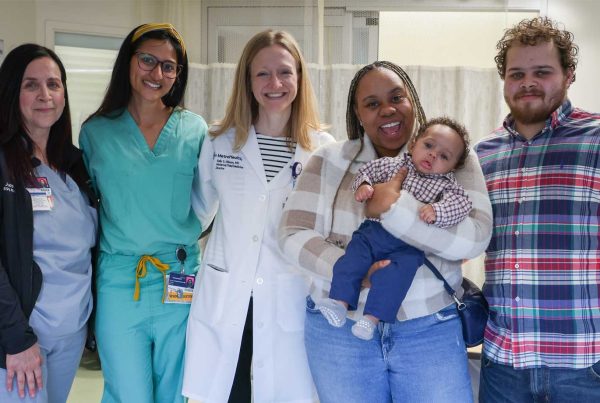Colorectal Cancer Screening Saves Life
Over 45? Your primary care provider can help assess your risk for colorectal cancer
and determine which screening method is right for you.
According to the American Cancer Society, if you are 45 years old or older, you should talk to your doctor about getting screened for colorectal cancer. The disease kills more than 50,000 Americans each year, but with testing, we can identify early indicators and prevent it from taking lives.
MetroHealth screening options:
- A FIT (fecal immunochemical test) is a non-invasive stool-based at home test.
- Cologuard is a non-invasive stool-based test you can take at home.
- A colonoscopy, considered to be the most reliable test for colorectal cancer, is an out-patient procedure performed at one of our hospitals.
Your primary care provider will talk with you to determine your risk factors and recommend the screening right for you. If you have a parent or sibling who has had polyps or cancer, you are considered to be at high risk for colorectal cancer. In this case, you likely will be advised to have a colonoscopy. Those who smoke or are obese also are thought to be at higher risk.
If you are found to be at average or low risk for colorectal cancer, your provider may suggest either a FIT screening or a Cologuard screening and will place the order for the kit. You can have the kit mailed to you or arrange to pick it up by calling 216-957-2550. You also can use MyChart to have the kit mailed to you.
Follow the screening instructions closely, but you simply collect a small sample of your stool (poop) during your next bowel movement and return the sample as soon as possible using the pre-paid packaging provided.
MetroHealth offers colonoscopies at our Main Campus, Cleveland Heights and Parma Medical Center locations. Once your doctor gives you an order for a coloscopy, you can make an appointment at any of those locations by calling 216-778-5381.
Don’t be among the millions of Americans who avoid or put off screening for colorectal cancer. Know your family history, make an appointment to talk with your provider and get screened.











